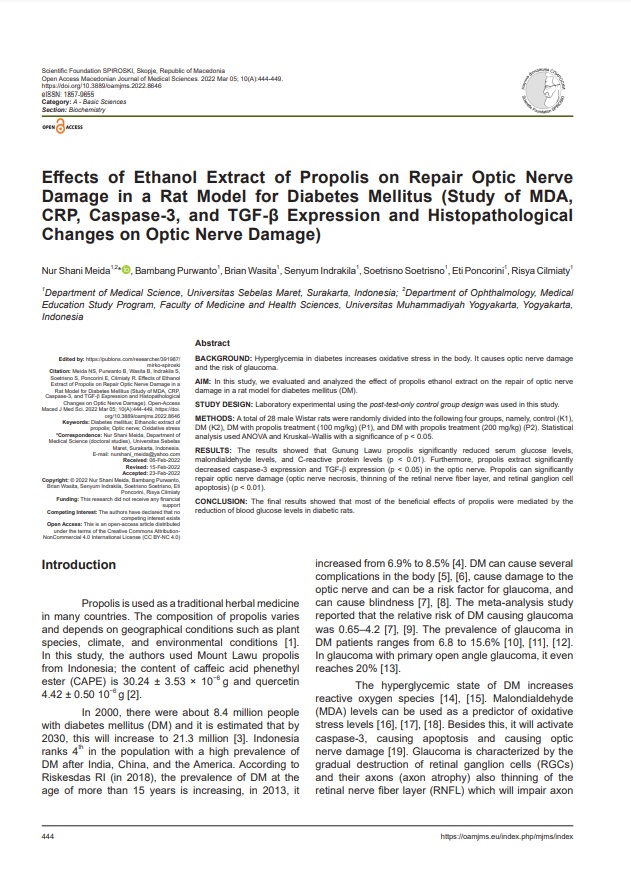Abstract
BACKGROUND: Hyperglycemia in diabetes increases oxidative stress in the body. It causes optic nerve damage and the risk of glaucoma. AIM: In this study, we evaluated and analyzed the effect of propolis ethanol extract on the repair of optic nerve damage in a rat model for diabetes mellitus (DM). STUDY DESIGN: Laboratory experimental using the post-test-only control group design was used in this study. METHODS: A total of 28 male Wistar rats were randomly divided into the following four groups, namely, control (K1), DM (K2), DM with propolis treatment (100 mg/kg) (P1), and DM with propolis treatment (200 mg/kg) (P2). Statistical analysis used ANOVA and Kruskal–Wallis with a significance of p < 0.05. RESULTS: The results showed that Gunung Lawu propolis significantly reduced serum glucose levels, malondialdehyde levels, and C-reactive protein levels (p < 0.01). Furthermore, propolis extract significantly decreased caspase-3 expression and TGF-β expression (p < 0.05) in the optic nerve. Propolis can significantly repair optic nerve damage (optic nerve necrosis, thinning of the retinal nerve fiber layer, and retinal ganglion cell apoptosis) (p < 0.01). CONCLUSION: The final results showed that most of the beneficial effects of propolis were mediated by the reduction of blood glucose levels in diabetic rats. © 2022 Nur Shani Meida, Bambang Purwanto, Brian Wasita, Senyum Indrakila, Soetrisno Soetrisno, Eti Poncorini, Risya Cilmiaty.
Author keywords
Diabetes mellitus; Ethanolic extract of propolis; Optic nerve; Oxidative stress

